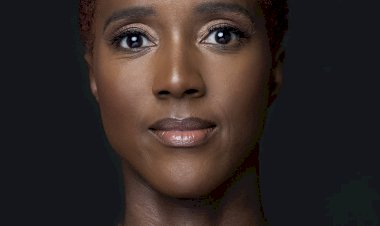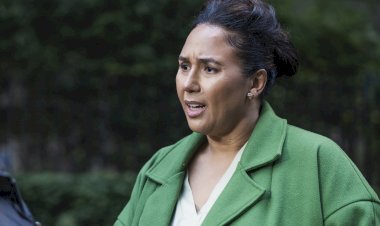New study to investigate the disadvantages black women with cancer can face

New study to investigate breast cancer in ethnic minority groups
A new research project, funded by Cancer Research UK, aims to shed light on the variation in breast cancer in different ethnic minority groups.
Dr Toral Gathani, an academic and consultant cancer surgeon at the University of Oxford, will investigate why women from ethnic minority backgrounds are less likely to get breast cancer, but why it is more likely to be a more aggressive form of the disease when they do.
Breast cancer is the most common cancer in the UK*, but analysis of national data has shown women from Black Caribbean and Black-African backgrounds are significantly more likely to have more advanced disease at diagnosis than White British women.**
Additionally, this analysis which studied women aged 30-70 in England using national data, has shown that those from certain ethnic minority backgrounds had significantly greater odds of less favourable tumour characteristics compared to White women, and that these differences are more marked in Black compared to Asian groups.**
Dr Gathani’s three-year project will use existing data from large national studies and the National Cancer Registry Service in England to look at breast cancer incidence rates and how breast cancer risk factors such as weight, alcohol intake and reproductive factors, may differ in different ethnic groups.
Cancer Research UK have funded the project with £101,000 for the first year with future funding planned for a further two years.
The results will help us to better understand breast cancer for women with an ethnic minority background.
Dr Toral Gathani, Senior Clinical Research Fellow at the University of Oxford and Consultant Surgeon, said:
“This is an important research project with direct public health relevance. If we can establish the barriers people face in accessing healthcare and describe the pattern of risk factors in certain groups, we can work to improve cancer outcomes.”
Michelle Mitchell, Cancer Research UK Chief Executive, said:
“Cancer inequalities – unfair, avoidable and systemic differences between population groups – are present at every stage of the cancer experience, including the prevalence of cancer risk factors, screening uptake and barriers to seeking help.
“Women from ethnic minority backgrounds may be less likely to take up invitations for breast screening and women from Black Caribbean and Black African backgrounds are more likely to be diagnosed at a later stage.
“This study will allow us to further understand some of the reasons behind these differences and help us find new ways to remove barriers and improve breast cancer outcomes for women from ethnic minority communities in the UK.”
Dr Gathani’s research team will also review and summarise all the data from previous studies and reports to provide the most up to date information to identify why ethnic minority women may find it harder to access healthcare services or to attend breast screening appointments.
The personal and genetic factors which influence breast cancer risk, and type of breast cancer at diagnosis, have not been examined in detail in different ethnic groups; Dr Gathani’s team will investigate the potential for establishing a large-scale study of this kind through surveys and interviews.
The research will be supported by an ethnically diverse Patient and Public Involvement Panel and a national Ethnicity and Breast Cancer Working Group comprising clinical and academic experts in healthcare and cancer research.
Let's take a closer look at the statistics.
**Black African women aged 30-70 had significantly greater odds of high stage, high grade and ER negative status compared to White women. Black African women aged 53-70 also had significantly greater odds of HER2 positive status. Black Caribbean women aged 30-70 had significantly greater odds of high stage breast cancer compared to White women. Black Caribbean women aged 53-70 also had significantly greater odds of high grade, ER negative status and HER2 positive status. Pakistani women aged 30-70 had significantly greater odds of high grade breast cancer compared to White women. Pakistani women aged 53-70 also had significantly greater odds of high grade and ER negative status.
Indian women with breast cancer aged 30-70 did not have significantly greater odds of high stage, high grade, ER negative status and HER2 positive status when compared to White women. Indian women aged 53-70 did have significantly greater odds of high grade and ER negative status.
Gathani, T., Reeves, G., Broggio, J. et al. Ethnicity and the tumour characteristics of invasive breast cancer in over 116,500 women in England. Br J Cancer 2021;125, 611–617. https://doi.org/10.1038/s41416-021-01409-7
About Cancer Research UK
- Cancer Research UK is the world’s leading cancer charity dedicated to saving lives through research, influence and information.
- Cancer Research UK’s pioneering work into the prevention, diagnosis and treatment of cancer has helped save millions of lives.
- Cancer Research UK has been at the heart of the progress that has already seen survival in the UK double in the last 50 years.
- Today, 2 in 4 people survive their cancer for at least 10 years. Cancer Research UK wants to accelerate progress and see 3 in 4 people surviving their cancer by 2034.
- Cancer Research UK supports research into the prevention and treatment of cancer through the work of over 4,000 scientists, doctors and nurses.
- Together with its partners and supporters, Cancer Research UK is working towards a world where people can live longer, better lives, free from the fear of cancer.
A big thanks to
Fiona MacLeod
Senior Media Relations Officer (Science) Scotland
Regional Media Relations
Cancer Research UK
Article by Alton Anderson

























